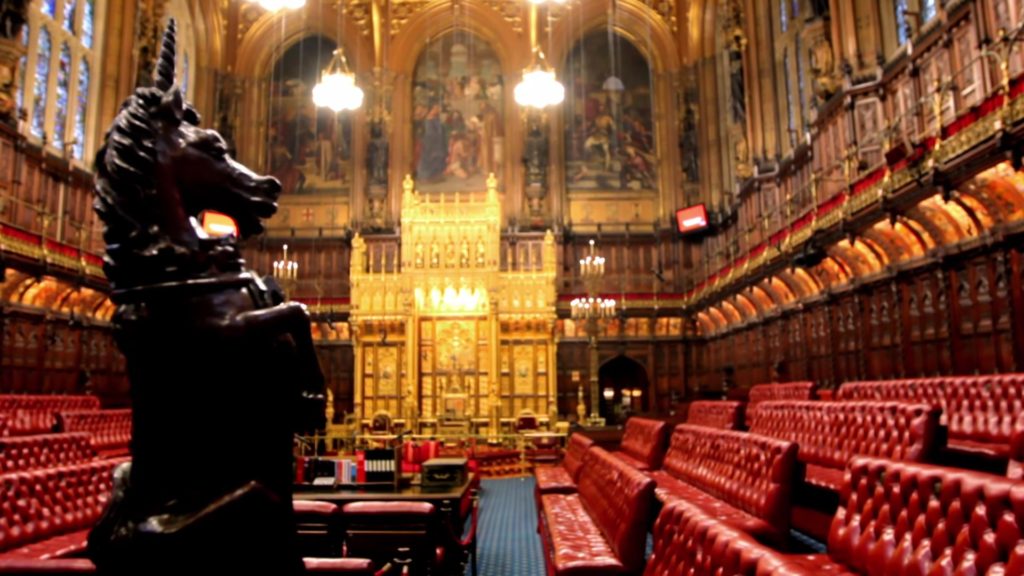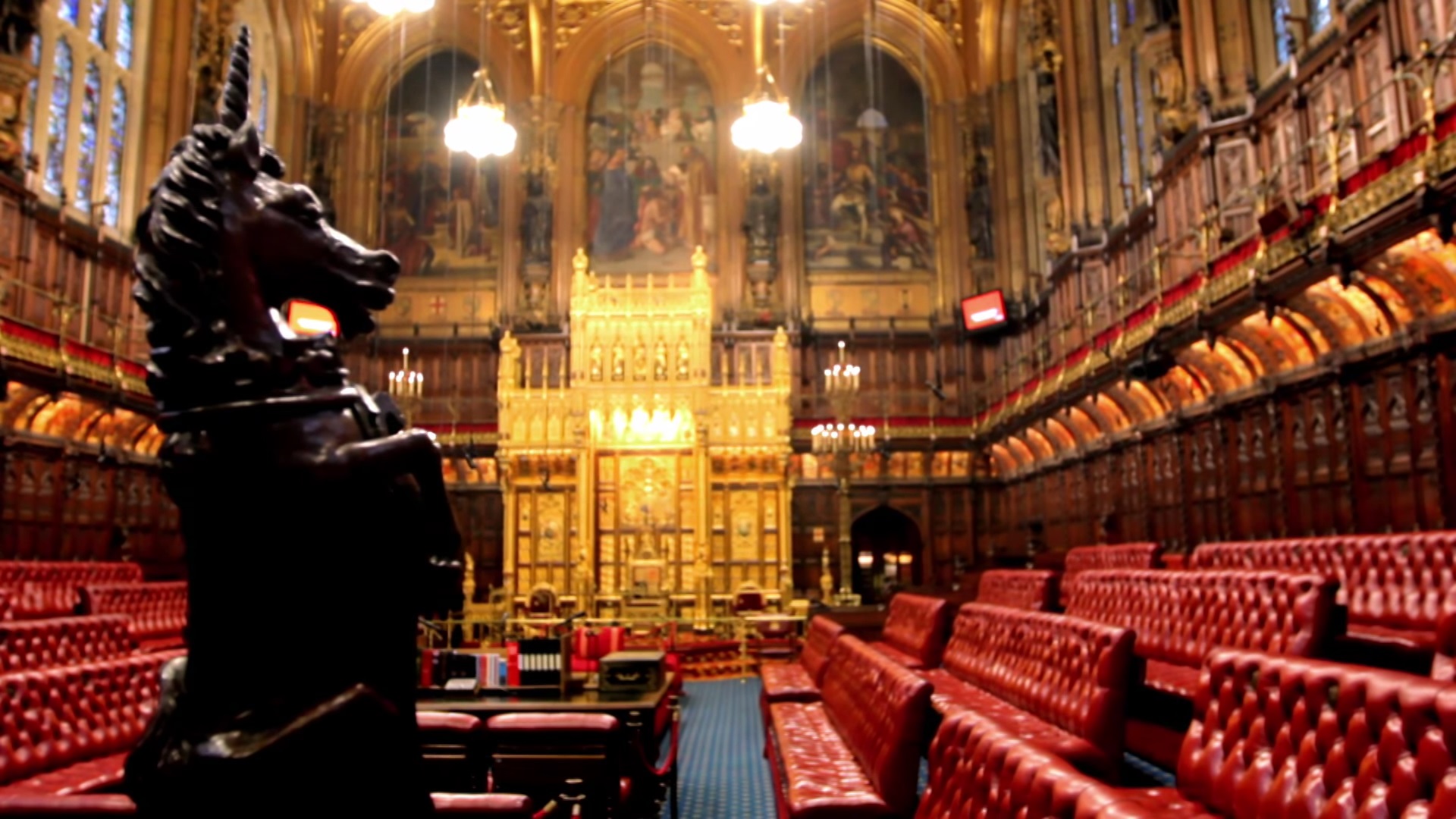We asked for feedback and proposals on what should happen with the House of Lords following an article by Crispin Williams on the subject. Jeremy Wraith duly obliged.

Opinion Piece by Jeremy Wraith
1 Introduction
The three main political parties all claim to represent and help the lowest paid members of our society. The Trussell Trust reports that there are 14 million living in poverty, and 1,200 food bank centres had to provide 16 million food supplies last year. Compare this to the decadent institution which is the House of Lords (HoL).
The HoL is clearly in urgent need of reform. Life Peerages are awarded willy nilly to cronies and failed politicians by their political friends and colleagues. It is therefore inconceivable that politicians will reform a system where they, their cronies, failed and retired politicians can spend the rest of their lives in a priveliged institution where they can rob the taxpayers daily of £305 plus expenses and subsidised meals, including vintage champagne.
In addition, the HoL is supposed to act as an advisor to parliament and is claimed to be needed to prevent bad laws being passed by parliament. However, the HoL is clearly and obviously a travesty, as the government can appoint as many life peers as it wants to support their policies. Witness the accusations that the Conservatives allegedly offered life peerages to Brexit Party candidates not to stand against them in last year’s general election. In addition, Tony Blair, when he was PM was allegedly accused of selling life peerages to bolster Labour Party funds. Hence the party in power and politicians generally must be prohibited from appointing life peers and for awarding honours.
2 Discussion
Currently, the HoL consists of 92 hereditary Peers and 734 Life Peers. They can attend the HoL on about 150 days/annum. Hence the total annual cost of the HoL in pay alone could be £38 million. Of this about half is probably a good working figure, say £20 million. The restaurant bill for the HoL is currently £60,000/week or nearly £2 million/annum. Hence, proposals for reform are as follows:
2.1 Abolish ALL current life peerages immediately. This leaves the current 92 hereditary peers.
2.2 groups of public institutions, as follows, to then appoint 10 new life peers each:
- Trade Unions
- The Institute of Directors/Business interests/SME’s
- The NHS/Medical profession
- The emergency services police/fire brigade/coast guard
- Armed forces, navy/army/air force
- Professional institutions such as RaeSoc, IMechE, RINA etc
- Retail Organisations
- Taxpayers groups
- Transport groups MN/ALPA/Haulage Associations
- Charities
NB Politicians of all parties, civil servants, local councillors, council employees, the judiciary and anyone in the media, i.e. newspapers, TV and religious groups etc.,
will all be specifically banned from becoming members of the HoL.
2.3 This means that the HoL would consist of only just over 200 members. This would cut the attendance cost from about £20 million to around £5 million saving £15 million. It should also cut the restaurant bill from £2 million to about £0.5 million. So the annual savings in attendance and meals should be nearly £16 million/annum
In addition, the above approach has many distinct advantages as follows:
2.4 It virtually eliminates political bias, cronyism and favouritism.
2.5 Because the emphasis will be on senior personnel being appointed it increases widely the experience and knowledge base in the HoL for making decisions.
2.6 It cuts the actual cost of maintaining the HoL by about 75%.
2.7 It obviates the need and cost of public elections.
2.8 It should more fairly represent a wider spread of the population and different careers.
2.9 By specifically banning those involved in law making on a national and local level it helps to significantly reduce the possibility of cronyism, bribery and corruption.
2.10 In future all awards must be made by the HoL, again to eliminate cronyism, bribery and corruption.
3 Result
An article in the Nursing Times, by Matt Bodell dated 16th August 2019, states that student nurses currently graduate with a debt of £54K. Newly qualified nurses are paid £24,214/annum. So, cutting over 730 current life peers who are probably seen by most of the population as vintage champagne swigging, part time, self serving, avaricious spongers and replacing them with 100 or so more dedicated life peers nominated by professional institutions would result in a momentous change in usefulness of the HoL. The money saved, rather than being used by life peers, generally seen as vintage champagne swigging leeches, could be used to improve the lot of student nurses and the many millions now living in poverty in the UK. Surely, there is no contest in this proposal!
In addition, the HoL should then be able to operate in the manner intended, i.e. as an independent assessor of government laws, and not be subject to the votes of hundreds of life peers supporting the policies of political parties that appointed them.

What do you think of these proposals? Write to us at Croydon Constitutionalists to share your views.
Main Photo by UK Parliament – https://www.youtube.com/watch?v=_sLZBWcPklk @ 01:06, CC BY 3.0, https://commons.wikimedia.org/w/index.php?curid=56761114

